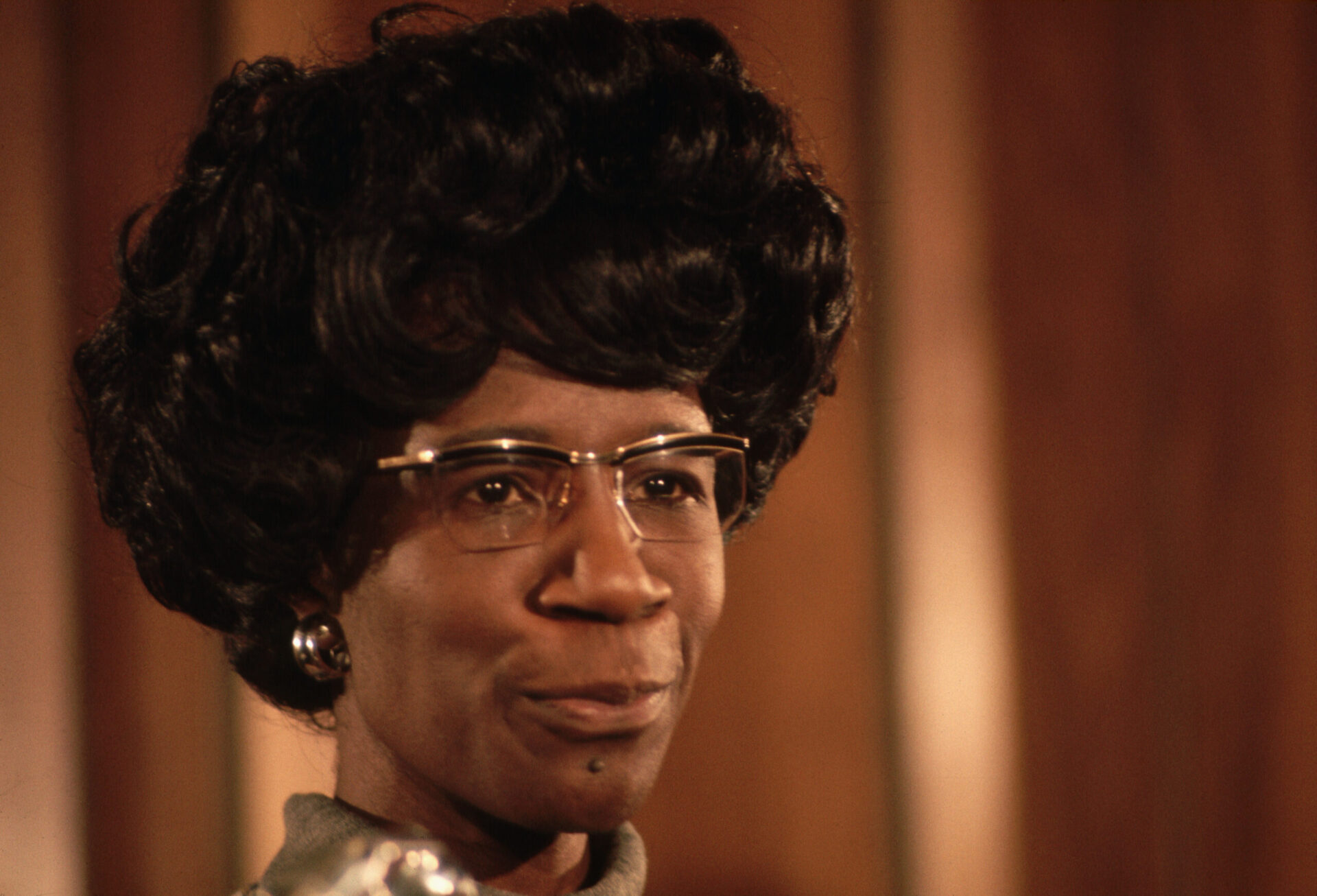
July 24, 2023
Shirley Chisholm Monument Marks Historic Moment In NYC As The First Public Artwork Honoring A Woman
The first Black woman to serve in Congress is being honored with her own monument.
New York City officials have weighed in on the efforts of the She Built NYC initiative to build more monuments honoring the women of New York City by approving the construction of a monument dedicated to the late Shirley Chisholm.
According to a statement, the Chisholm monument will mark a historic first as Brooklyn has never built permanent public artwork in honor of a woman. The 32-foot-tall memorial presents a rising Chisholm from the waist up, designed with green, stenciled metal trimmed in gold. The structure of the dome of the U.S. Capitol building extends from the congresswoman detailed with gold.
“The composite profile symbolizes how she disrupted the perception of who has the right to occupy such institutions and to be an embodiment for democracy,” monument artists Amanda Williams and Olalekan B. Jeyifous wrote in a proposal brief.
View this post on Instagram
“Our project celebrates Shirley Chisholm’s legacy as a civil servant who ‘left the door open’ to make room for others to follow in her path toward equity and a place in our country’s political landscape,” the artists said in 2019 after being selected by city officials. “We have designed a monument in which her iconic visage can be immediately recognizable while also equally portraying the power, beauty, and dimensionality of her contributions to our democracy.”
Chisholm is a native of the Brownsville neighborhood of Brooklyn, New York, where the monument will stand at Prospect Park’s southeast entrance.
The eldest daughter of Barbados and Guyana immigrants, Chisholm sought to excel in her education. She graduated from Brooklyn College in 1946 and earned her master’s degree from Columbia University in 1951 before becoming a member of Congress in 1968.
Chisholm served seven terms in Congress, where she introduced over 50 pieces of legislation, advocated for gender and racial equality, and addressed issues such as the Vietnam War and poverty. In 1972, the congresswoman announced her candidacy for president, in which she received only 152 delegate votes against George McGovern, who won at the Democratic National Convention with 1,729.